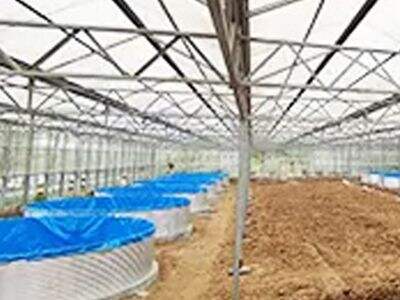Aquaculture is evolving, and it’s doing so for the best! A more environmentally friendly and sustainable way of fish farming is increased due to greener regulations. That includes taking care of the environment and the fish all at once. The latest rules are changing the shape of fish farming yet again.
The move towards environmentally-friendly fish farming practices:
Previously, some batch of fish farming had harmed the environment. But now, things are different. Many are beginning to incorporate more eco-friendly farming practices to ensure the fish are healthy and content. For example, some farms are deploying special equipment to clean the water that fish swim in. This is a way to keep the fish healthy and the environment clean.
How rules are remaking the future of the fish farm:
Regulations are kind of like rules that fish farms are required to follow. Those rules are getting tougher to ensure fish farming is done the right way. It covers things like how much food the fish are fed, how much space they have to swim and how clean the water is. By these rules, farms can be sure the fish are well cared for and the environment is not harmed.
The indispensability of" green" criteria in fish farming:
It seems like eco-friendly standards are all the rage these days. According to these standards, fish farms can ensure they are not damaging the land, water or air around them. For instance, some fish farms are turning to solar power to operate their machinery. This also culminates in environmental conservation with less pollution. Adopting eco-friendly parameters, brings this planet healthy.
The new green of seafood regulations:
Something fishy is happening — in a good way. Like them or loathe them, greener regulations are forcing fish farms to shape up their act and help protect the environment. By complying with such regulations, fish farms may help ensure that they are doing their shares to keep the oceans clean and the fish healthy. Welcome to an age of greener regulation that is beginning to define a more sustainable future for the seafood industry.
The positive effects of tightening regulations on fisheries farms:
More stringent rules may seem hard, agriculture fish farming but in fact they have many advantages. Adhering to these “commandments” will ensure orderly, efficient, and healthy fish production at fish farms. Such regulations also serve to be environmentally protective, by guaranteeing that fish farming is done in a sustainable manner. In general, more stringent regulations benefit the fish farming business as well as the seafood industry in general.
In sum, greener regulations are raising the bar for farmed fish in a good way. "Fish that are fortunate to have been raised through sustainable practices with strong regulations and firm commitment to environmentally sound standards can be assured namesthe health of both the fish and the environment. This new age of greener regulations is helping to pave a path forward for the seafood industry that is sustainable and responsible. By adopting these regulations, Wolize is dedicated to stirring the call for an eco-friendlier and sustainable form of fish production.












































